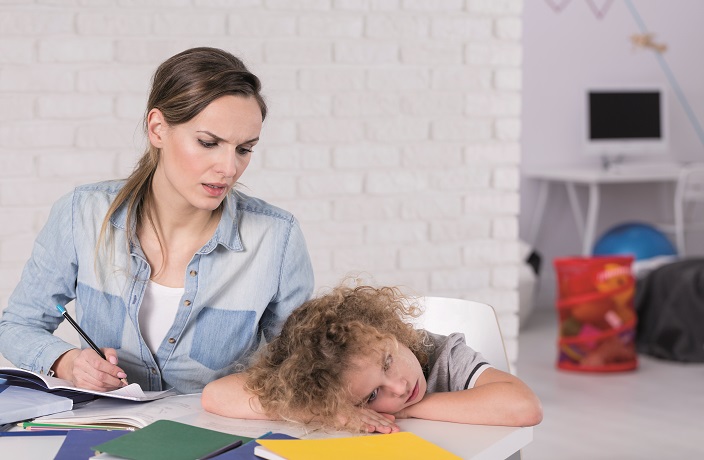The majority of referrals I receive for psychotherapy are from parents, teachers, or school administrators reporting observable changes in a child’s behavior. When these changes occur, parents will often pose the question to me, ‘Do you think my child has ADHD?’
As a mental health professional who specializes in working with children and families, I recognize the inherent challenges that come with discerning between what symptoms are the result of an actual, neurologically-based learning disorder, and what symptoms may be better accounted for by a mood and/or anxiety-based mental health condition. As caring and concerned adults who wish to support our children in all their social, emotional and learning needs, we might consider it helpful to have a basis for understanding as to what symptoms are consistent with a formal learning disorder diagnosis.
ADHD is one of the most frequently misdiagnosed mental health conditions in children
What the Research Tells Us
The latest edition of the Diagnostic and Statistical Manual of Mental Disorders describes Attention-Deficit/Hyperactivity Disorder (ADHD), as a mental health condition marked by longstanding challenges in an individual’s ability to maintain an attention span or contain impulses. ADHD is divided into three separate subcategories: 1) Predominantly Inattentive Type, 2) Predominantly Hyperactive/Impulsive Type and 3) Combined Type.
Some of the hallmark characteristics of ADHD-Predominantly Inattentive Type include challenges with closely attending to schoolwork, difficulties with sustained attention during classroom instruction, frequently losing things or an inability to stay organized and on task. Meanwhile, characteristics of ADHD-Predominantly Hyperactive/Impulsive Type are observed in a child who frequently squirms or fidgets in his or her seat, frequently runs about and is ‘on the go,’ has difficulties with waiting for his or her turn, interrupts others, or who behaves in an impulsive manner. Last but not least, ADHD Combined Type is when symptom criteria for both Inattentive Type and Hyperactive/Impulsive Type are met.
While the onset of ADHD can occur in adolescence or adulthood, the vast majority of individuals with ADHD have shown symptoms dating back to as early as the primary and elementary school years.
Tips for Better Identifying and Managing ADHD-Consistent Symptoms
1) Use caution in assessing your child’s symptoms. If your child demonstrates only one or two of the symptoms listed above, it is highly unlikely that he or she would be considered for a formal ADHD diagnosis. However, if you notice that your child displays a number of these symptoms, it may be worth arranging for a consultation with a mental health professional.
2) Seek out a formal assessment by a specialty-trained mental health professional. Given that ADHD is one of the most frequently misdiagnosed mental health conditions in children, you will want to have a proper assessment conducted by a child and adolescent-focused practitioner who specializes in this domain. While well-informed pediatricians and other general medical practitioners likely have some experience with and exposure to ADHD symptoms in children, it often takes the well-trained eye of a mental health specialist to determine what symptoms and behaviors warrant a formal diagnosis of ADHD.
3) Advocate on your child’s behalf. While the over-diagnosis and public misunderstanding of ADHD is evident, a true neurological ADHD condition can be quite debilitating for both the child and the family as a whole. Despite a limited pool of resources, the Shanghai community has multiple international clinics and learning centers that specialize in the treatment and advocacy for children with learning-related challenges. Utilize the resources available to you to ensure that your child receives a proper assessment that can then translate to home and school accommodations that best fit his/her learning style.
Dr. Balfanz is the Senior Clinical Psychologist at American Medical Center, a comprehensive medical and mental health service clinic for children, adolescents, adults, and families living in Shanghai. For more information on clinic services, contact Dr. Balfanz at: nate.balfanz@amc-shanghai.cn or visit his website at: www.drnatebalfanz.com


















